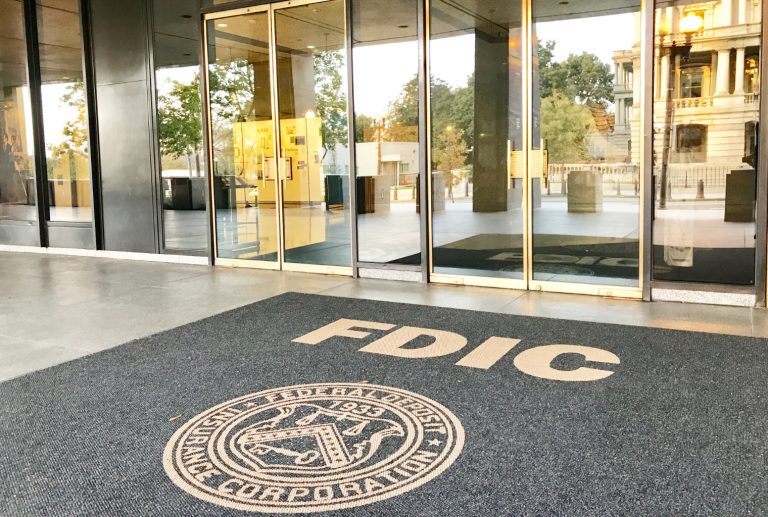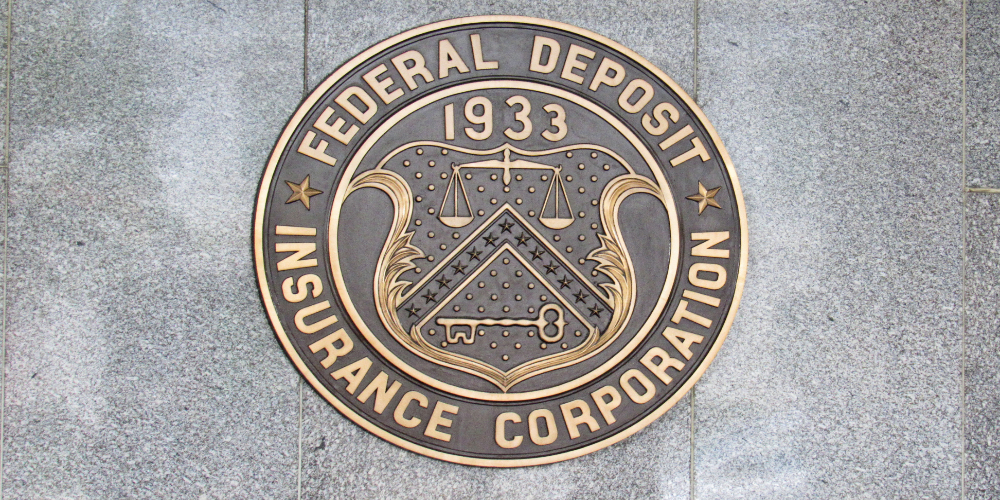Latest news about Bitcoin and all cryptocurrencies. Your daily crypto news habit.

Since the coronavirus started spreading in the U.S., two banks have failed and were shut down by state banking authorities. One was a bank in West Virginia and the other was in the state of Nebraska. The governor of West Virginia has already issued a stay-at-home order due to rising covid-19 cases.
Also read: IMF Declares Global Recession, 80 Countries Request Help, Trillions of Dollars Needed
Banks Failing During Pandemic
The latest bank to fail in the U.S. was a small bank in West Virginia called “The First State Bank.” It was closed on Friday by the state’s Division of Financial Institutions, according to the Federal Deposit Insurance Corporation (FDIC), an independent agency of the U.S. government that aims to protect the funds depositors place in banks and savings associations. The agency explained:
The First State Bank has experienced longstanding capital and asset quality issues, operating with financial difficulties since 2015. The bank’s December 31, 2019 financial reports indicated capital levels were too low to allow continued operations under federal and state law.
 The Federal Deposit Insurance Corporation (FDIC) announced on Friday that a small bank in West Virginia has failed and has been shut down by the state’s banking regulator. Its deposits and customers have been transferred to another bank.
The Federal Deposit Insurance Corporation (FDIC) announced on Friday that a small bank in West Virginia has failed and has been shut down by the state’s banking regulator. Its deposits and customers have been transferred to another bank.
The FDIC subsequently entered into a purchase and assumption agreement with another bank in the state, MVB Bank of Fairmont, to assume all of the deposits of the failed bank. Depositors of The First State Bank automatically became depositors of MVB Bank. As of Dec. 31, 2019, The First State Bank had approximately $152.4 million in total assets and $139.5 million in total deposits.
The four branches of The First State Bank have reopened as branches of MVB Bank. The agency emphasized that it “strongly encourages bank customers to follow Centers for Disease Control and Prevention guidance on social distancing and utilize online and electronic banking capabilities. In keeping with West Virginia Governor Jim Justice’s Stay-at-Home Order, customers should visit a bank branch only if an in-person visit is essential and only after making an appointment.”
Following the FDIC’s announcement, some people voiced their concerns on social media that more banks will fail due to the pandemic. However, the agency insisted that the failure of The First State Bank was not due to the coronavirus outbreak.
 Since the first reported covid-19 case in the U.S., two banks have failed and were shut down by state banking authorities: one in West Virginia and one in Nebraska. The FDIC has insisted that the failure was not related to the pandemic that has swept through the states.
Since the first reported covid-19 case in the U.S., two banks have failed and were shut down by state banking authorities: one in West Virginia and one in Nebraska. The FDIC has insisted that the failure was not related to the pandemic that has swept through the states.
First Bank to Fail Since Coronavirus Began Spreading in the US
The first covid-19 case in the U.S. was confirmed on Jan. 21, and the first bank in the country to fail after that was Ericson State Bank in Nebraska. The bank, which had only one branch, was closed down by the state’s Department of Banking and Finance on Feb. 14.
The FDIC subsequently entered into a purchase and assumption agreement with Farmers and Merchants Bank in Milford, Nebraska, to assume all of the deposits of the failed bank. As of Dec. 31, 2019, Ericson State Bank had approximately $100.9 million in total assets and $95.2 million in total deposits.
Prior to The First State Bank and Ericson State Bank, four U.S. banks failed in 2019, none of which were in the first four months of the year. No banks failed in 2018, according to the FDIC.
Do you think more banks will fail this year? Let us know in the comments section below.
The post 2 American Banks Have Failed Since Coronavirus Started Spreading in the US appeared first on Bitcoin News.
Disclaimer
The views and opinions expressed in this article are solely those of the authors and do not reflect the views of Bitcoin Insider. Every investment and trading move involves risk - this is especially true for cryptocurrencies given their volatility. We strongly advise our readers to conduct their own research when making a decision.